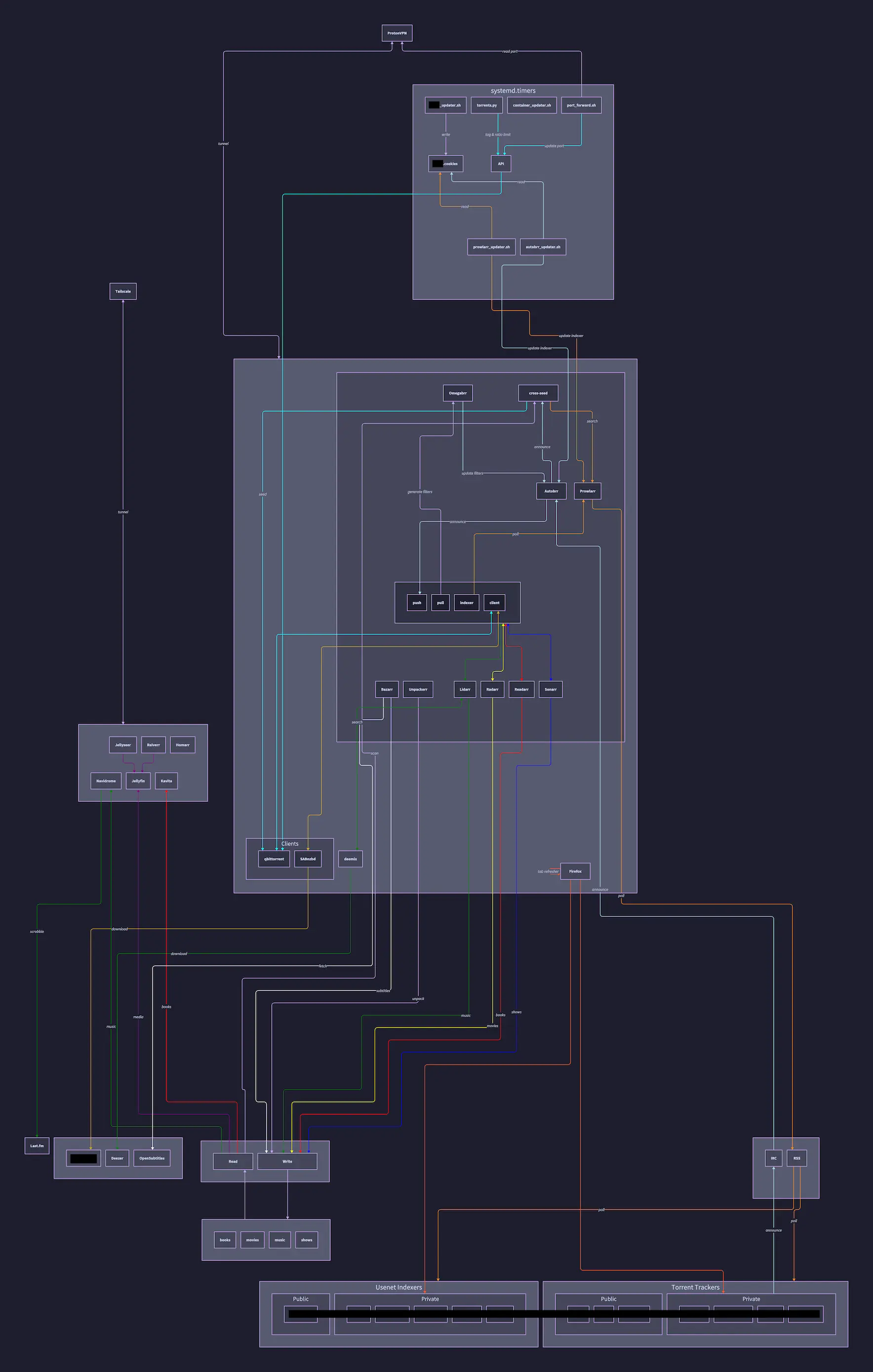Context
Having started out in the world of Napster & Limewire, I've always relied on public sources. It wasn't until in the early '10s that I lucked into a Gazelle-based tracker that was started by some fellow community members. Unfortunately, I wasn't paying enough attention when they closed shop and didn't know how to move elsewhere. Combined with some life circumstances I gave up the pursuit for the time being.
It wasn't until recently that a friend was kind enough to help me get back and introduced me to current state of automation. Over the course of a few months, I've since built up the attached systems. I've been having an absolute blast learning and am very impressed with all of the contributions!
After all of the updates due to BF deals, I put together the attached diagram as it was starting to get too complex to keep all of the interactions in my head. 😅
Setup
- All of the services run in Docker containers.
- Each container is a separate Compose file managed by Systemd.
- The system itself is in a VM running on my home server (both Arch, btw).
- Tailscale is used for remote access to the local network.
- ProtonVPN is managed by Gluetun and uses a separate network for isolating services.
Questions
- What am I missing or can be improved?
- Is there a better way to document?
- What do you do differently that might be beneficial?
Thoughts
- I had Calibre set up at one point, but I really don't like how it tracks files by renaming them. I have been considering trying to automate with the CLI instead, but haven't gotten around to it yet.
- I've been toying with the idea of creating a file-arr for analyzing disk usage, performing common operations, and exposing a web-based upload/download client so I don't have to mount the volume everywhere.
- Similarly, I'm interested in a way to aggregate logs/notifications/metrics. I'm aware of Notifiarr, but would prefer a self-hosted version.
- I just set up Last FM scrobbling so I don't have any data yet. I'm hoping to use that for discovery and if possible, playlist syncing or auto-generation.
Notes
- Diagram was made using D2lang.
- Some of the connections have been simplified to improve readability / routing.
- Some services have been redacted out of an abundance of caution.
- I know VPN with Usenet isn't necessary, but it's easier to keep it consistent.
Also, thanks for the recommendations to check out deemix/Deezer. That worked really well! 😀
Edit: HQ version of diagram

Someone should make a 100% science-based dungeons game.